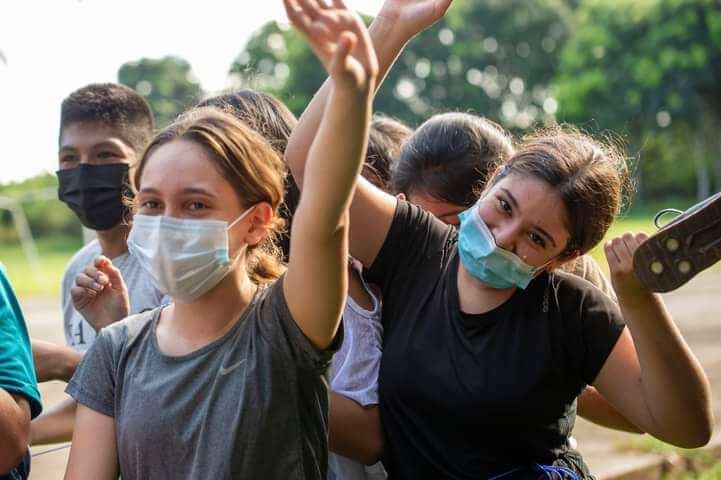The project “Children’s and women’s rights in Bolivia: Follow up on the UN bodies recommendations” is designed as a follow-up to the Project implemented in Bolivia in 2018-2019, at the end of which 45 human rights defenders from 19 local and international organizations were trained on the United Nations mechanisms for the promotion and protection of human rights, particularly the UPR mechanism. The most important outcome of the previous project was the opportunity to have a broader and more accurate view of what can be improved in areas such as proactive participation, child labor, and gender-based violence for the better exercise of human rights. Based on previous findings and as a result of feedback received and conversations with members and partners working in the country, FMSI decided to implement a new project focusing, in particular, on child and youth participation, gender-based violence, and child labor.
UPR monitoring of Bolivia revealed weak compliance by the state with regard to some of the Basic Human Rights, particularly with regard to the issues detailed below:
- Child and youth participation: during the last review of Bolivia, it was revealed that there is a total absence of direct involvement of children in the country, in total contradiction to the right of children to participate. During its 88th session, the CRC (Committee on the Rights of the Child – a group of experts that monitors the implementation of the UN Convention on the Rights of the Child) suggested giving relevance to the views of children in decisions that directly affect them.
- Gender-based violence: Bolivia has one of the highest rates of sexual violence against children in all of South America and one of the lowest rates of reporting. According to recent reports, most of this violence takes place within the home or in the workplace of minors. Many girls between the ages of 15 and 19 believe it is justifiable for their husband or partner to beat them, as a normal part of a relationship.
- Child labor: in 2014, Bolivia passed a new code that lowers the minimum working age to 10. As a result, in 2015, 20.2 percent of children between the ages of 7 and 14 were engaged in some of the worst forms of child labor, including mining and sugarcane harvesting.
AIM OF THE PROJECT:
The project is being implemented in Bolivia, i.e., in the country that has aroused great public concern-both locally and internationally-about the implementation of the recommendations that have emerged as a result of the UPR (Universal Periodic Review), the mechanism of the United Nations Human Rights Council tasked with periodically reviewing the Human Rights performance of all 193 member states. In a situation such as the one just described, the project “Children’s and women’s rights in Bolivia: Follow up on the UN bodies recommendations” aims to improve access to Human Rights by monitoring the implementation of the relevant UPR recommendations, focusing maximally on gender-based violence and child labor as well as on the right of children to participation, for this purpose fostering the development of critical skills such as to enable the effective monitoring of the application of their rights. Bolivia was reviewed under the UPR in 2019 and will be reviewed again by the CRC in 2021. This is a unique opportunity for Bolivian civil society to promote the implementation of the rights of women, youth, and children.
THE PROJECT IN BRIEF:
The objective of the Project is to improve access to Human Rights by monitoring the implementation of UPR recommendations, focusing maximally on gender-based violence and child labor as well as the right of children to participate.
THE PROJECT IN NUMBERS:
- 3.800 direct beneficiaries
- 25.200 indirect beneficiaries
- 1 online course on UPR and CRC recommendations
- 1 coordination group to monitor the recommendations
- 1 training course for adolescents and youth
- 3 workshops for adolescents and youth to develop 2 concrete action plans
- 3 awareness-raising events
- 20 workshops to prevent violence against women
- 20 information sessions for better implementation of the national law on violence against women
- 1 training program on alternative methods of conflict resolution
- 150 Primary School children will be able to act as mediators
SDG Goals: 1, 4, 5, 16
Laudato Si’ Goals: 2, 5, 7


